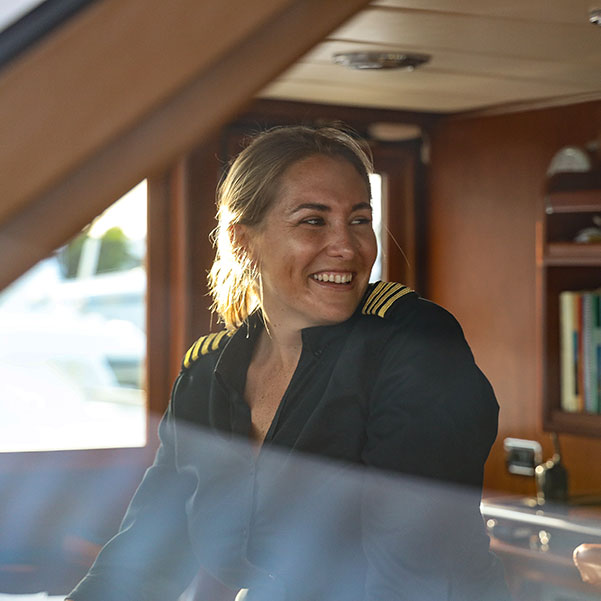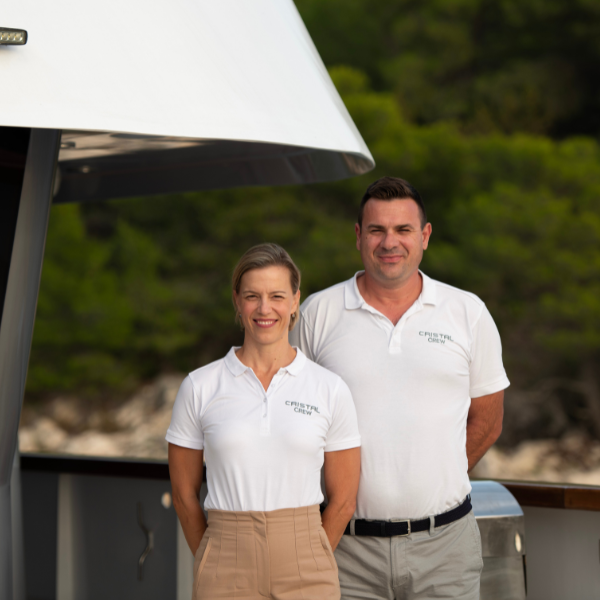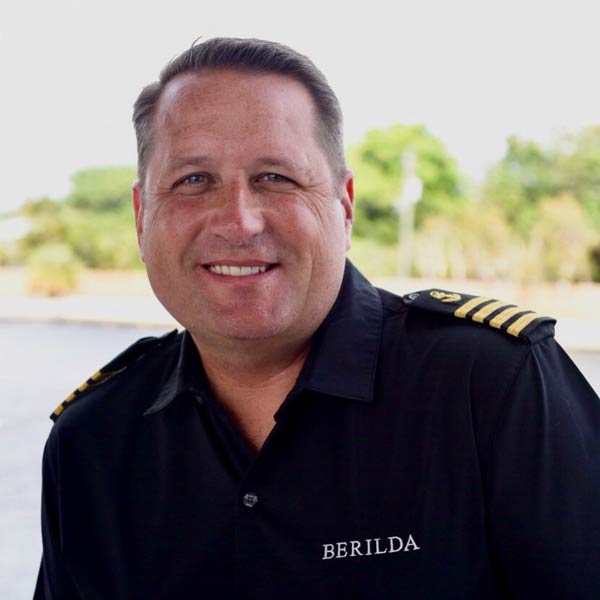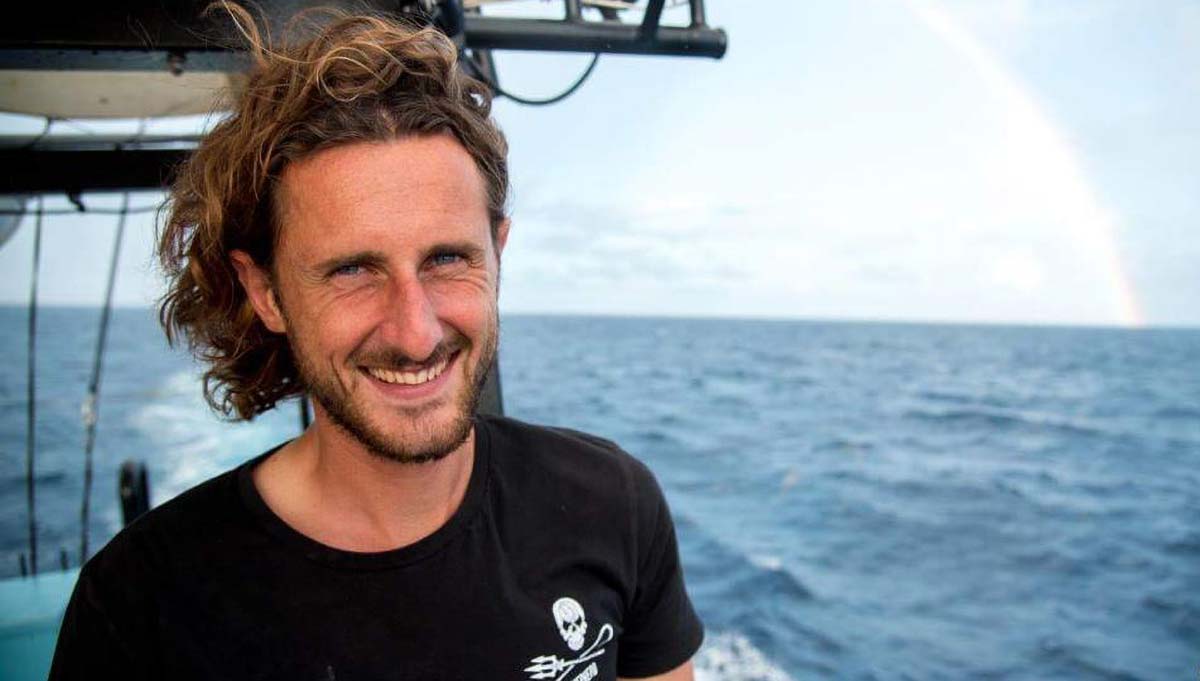

#humansofyachting – Benoit Sandjian
The marine biologist and captain of eco-luxury electric charter yacht E talks corals, climate change and catamarans.
“I’m from France and started sailing courses when I was a kid on summer holidays. The film ‘The Big Blue’ was a big influence on me back in the 1980s, as well as watching the work of Jacques Cousteau. It all combined to create a great passion for, and interest in, the sea and the life that lives in it. That’s why I decided to train as a marine biologist.
I still work on marine projects today, but little by little I have drifted towards more operational jobs – that’s how I got into driving boats and then into yachting. I found out about E when I was doing an engineering course down in Cowes in the UK and met John, who is a skipper on board. We talked a lot about it and I became very interested. As time passed, we kept in touch and he said there may be an opportunity one day. I joined in September, so it hasn’t been long, but I am enjoying it a lot already.
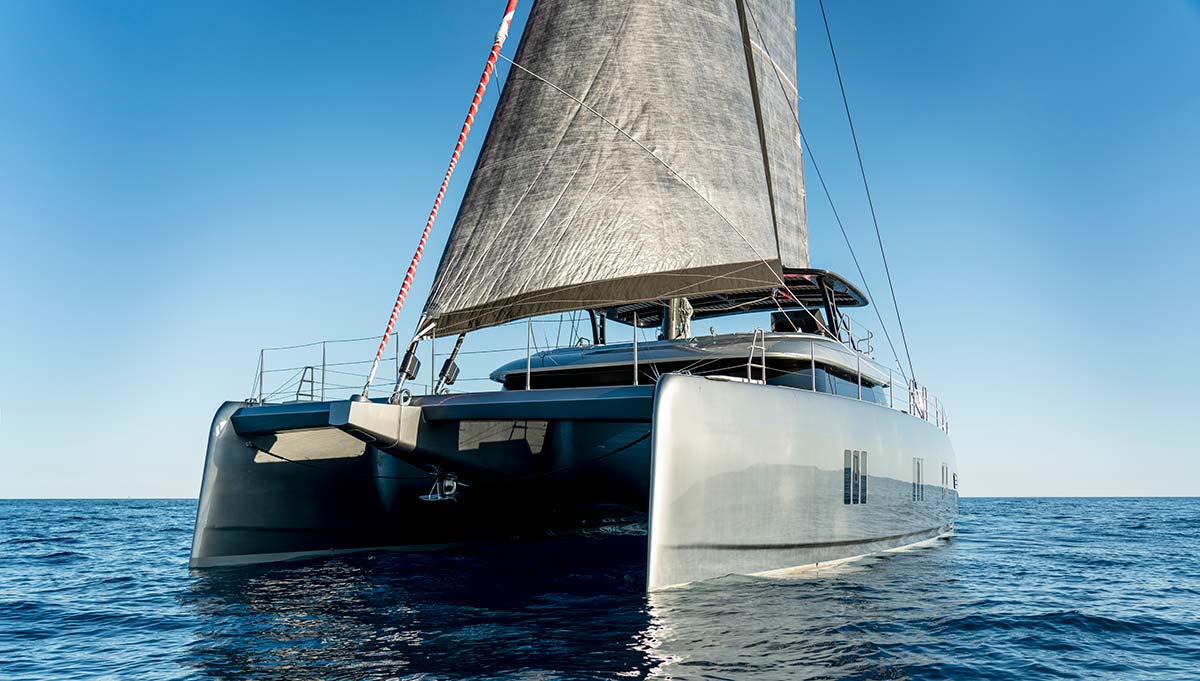
E Photo: David Churchill

E Photo: David Churchill
It is very tranquil to sail an electric yacht. I am more into sailing boats anyway and one of the reasons for that is that they allow you to be closer to the sea, the wind and all the elements. E is perfect for this because it’s essentially a sailboat, but even when it’s using the engine you can’t hear it. The silence is amazing. E is also a catamaran which comes with other benefits. There is more space, so for guests it is super comfortable. And when you sail, it can reach quite high speeds.
It’s impossible to make a boat totally zero impact but the team have tried to get as close to that as possible. When you start sailing, you create power that charges the batteries and they are used for all the appliances on the boat. That means that once the boat is up-and-running, you don’t need to burn any fossil fuel to sustain it. That’s the whole concept of the boat. There are also super high-tech solar panels on board. It’s really innovative and that makes working on it really interesting. E is also involved in some scientific projects – one of them seem a bit crazy; they are trying to help figure out the language of dolphins!
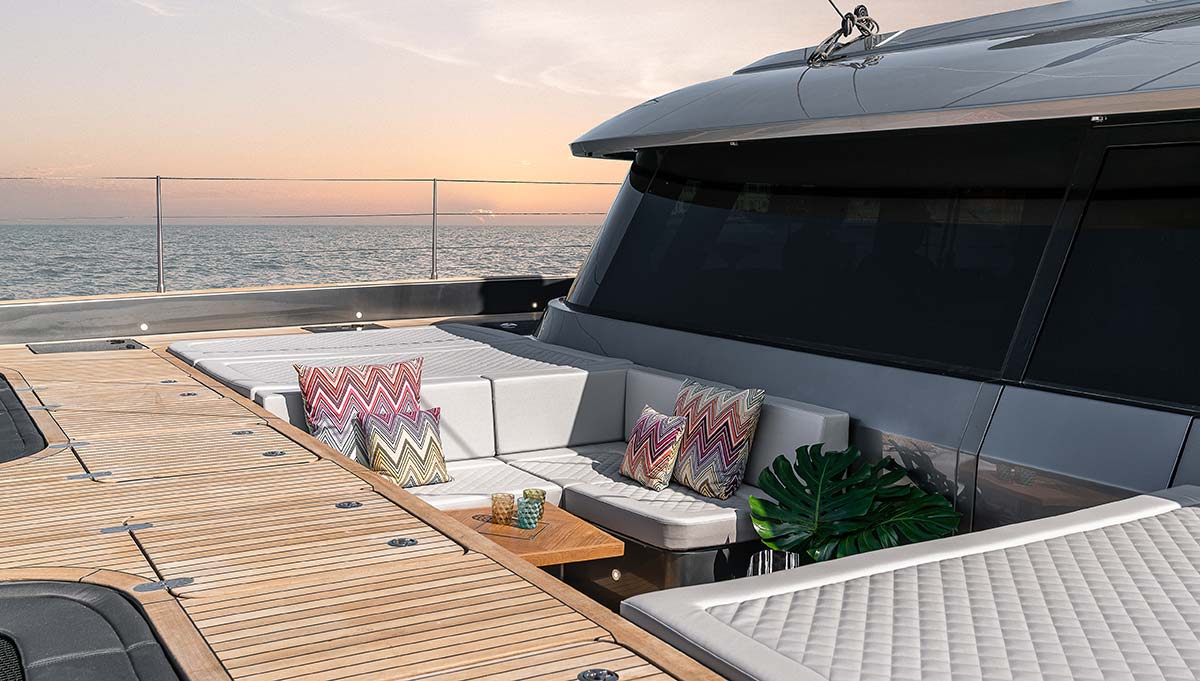

When I am not on board E, I am involved in other marine projects. I am spending a lot of time in Doha, for example, doing various projects relating to the coral reefs around the coast of Qatar. Qatar is a country that is developing really fast and that has an impact on the environment, so I am working with an organisation here to mitigate that impact. We can save some of the corals by taking them and relocating them to other areas where hopefully they can thrive. Sometimes we provide artificial reef structures for them and other times we’ll take them to places where they already grow naturally in suitable terrain.
I also used to work a lot for Sea Shepherd [a marine wildlife conservation organisation]. One of the main things they do is fight against illegal fishing. In Western Mexico, they are trying to save the vaquita porpoise which is on the brink of extinction. Another campaign was up in northern Canada trying to research the impact of salmon farms on wild salmon populations.
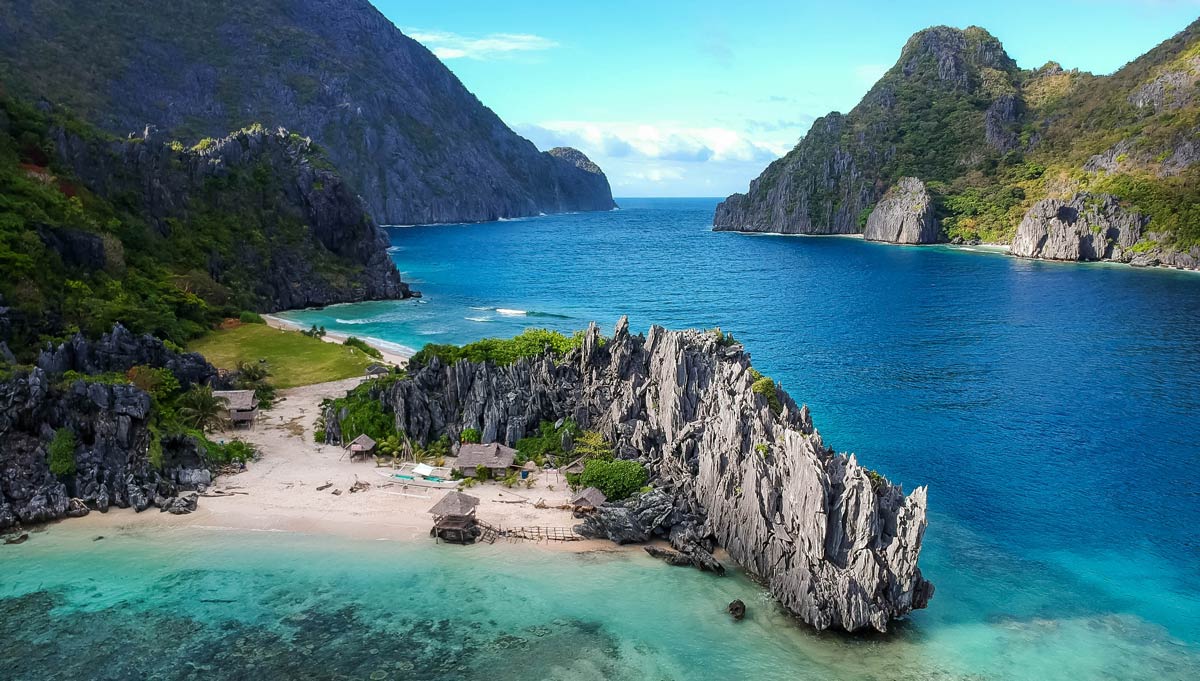
The Philippines

The Philippines
I’ve done a lot of diving my whole life. The best place I’ve been was when I finished studying and went and volunteered in the Philippines. I think I got spoiled because I haven’t been able to dive anywhere that beautiful since! There are tonnes of fish there, amazing coral, lots of colours and it’s fascinating. Indonesia and Madagascar were also great. Climate change is causing a lot of problems for coral though; it is dying in many parts of the world and we have to try to do something about it. If we manage to preserve some of the strongest species at least there is somewhere to start again in the future.
One of my best ever sailing trips was to the Falkland Islands. For sailing, it’s perfect as you get wind every day but you also get shelter, so you don’t get the nasty waves that you can encounter a bit further south. There are very few boats down there too so you can always get a little bay on your own. And the wildlife is really nice – you get penguins, sea lions, dolphins and elephant seals. It’s one of the best destinations.
I’d still like to go to is The Azores. I’ve been to many islands, mostly tropical, but never the Azores which are a bit more temperate and the marine life is supposed to be amazing. Also for sailors, it’s a big stop on the way back to Europe from the Americas so there’s a bit of history there. I really want to experience that.”

